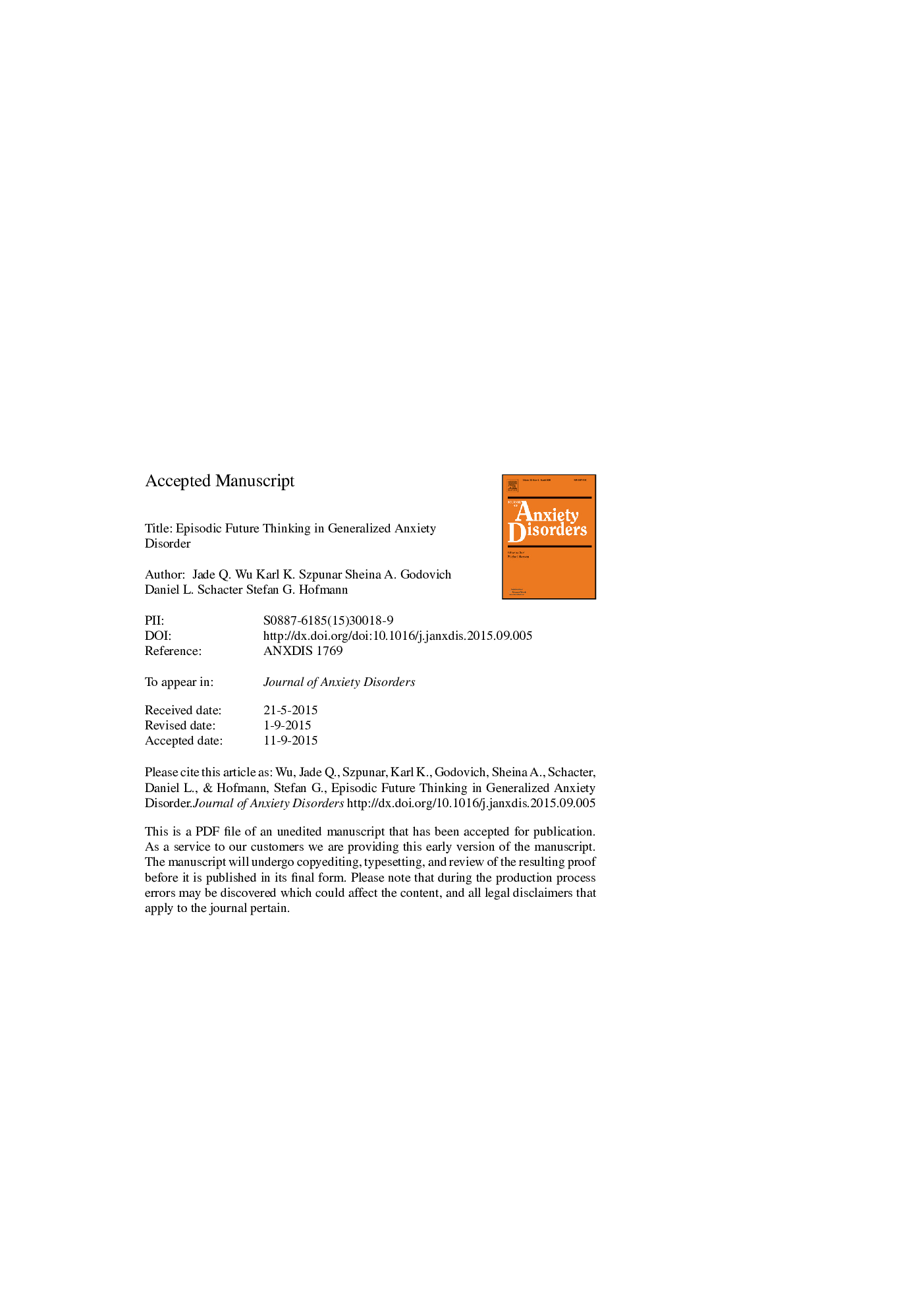| Article ID | Journal | Published Year | Pages | File Type |
|---|---|---|---|---|
| 7267240 | Journal of Anxiety Disorders | 2015 | 33 Pages |
Abstract
Research on future-oriented cognition in generalized anxiety disorder (GAD) has primarily focused on worry, while less is known about the role of episodic future thinking (EFT), an imagery-based cognitive process. To characterize EFT in this disorder, we used the experimental recombination procedure, in which 21 GAD and 19 healthy participants simulated positive, neutral and negative novel future events either once or repeatedly, and rated their phenomenological experience of EFT. Results showed that healthy controls spontaneously generated more detailed EFT over repeated simulations. Both groups found EFT easier to generate after repeated simulations, except when GAD participants simulated positive events. They also perceived higher plausibility of negative-not positive or neutral-future events than did controls. These results demonstrate a negativity bias in GAD individuals' episodic future cognition, and suggest their relative deficit in generating vivid EFT. We discuss implications for the theory and treatment of GAD.
Related Topics
Health Sciences
Medicine and Dentistry
Psychiatry and Mental Health
Authors
Jade Q. Wu, Karl K. Szpunar, Sheina A. Godovich, Daniel L. Schacter, Stefan G. Hofmann,
